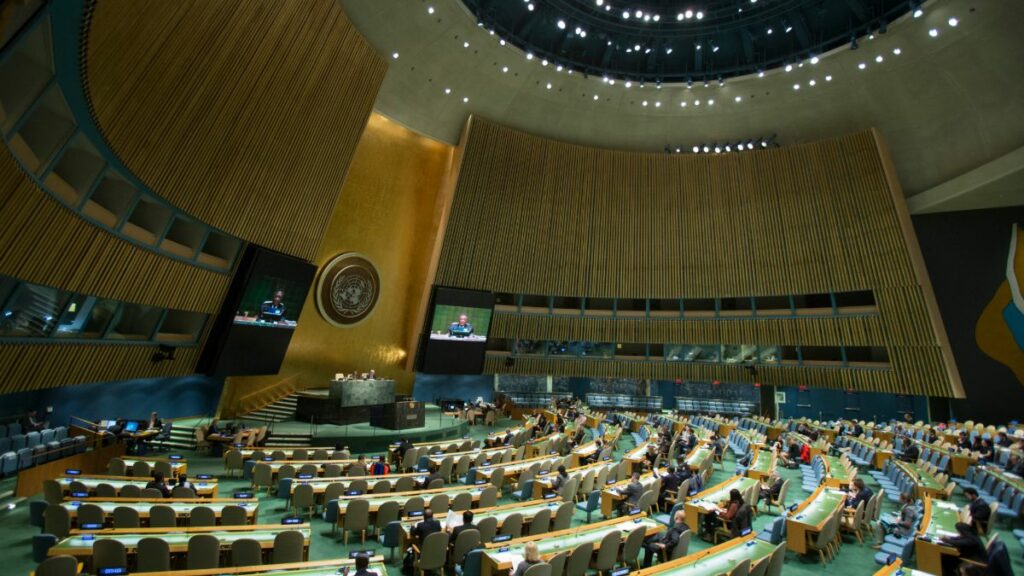Last updated on March 16th, 2020 at 02:25 pm
In advance of the 53rd session of the United Nations Commission on Population and Development, IOF has issued the following statement, which has been provided to ambassadors and their missions in New York.
On March 6, 2020, the UN Commission on Population and Development issued its initial draft (“zero draft”) resolution on the theme “Population, food security, nutrition and sustainable development” in advance of its upcoming annual session scheduled to begin March 30. The International Organization for the Family applauds the Commission’s efforts to end malnutrition and hunger, and particularly commends recognition of “the special nutritional needs among young pregnant women” (OP11). At the same time, IOF urges focus on the family as the key to development, and calls for deletion of certain language whose effect would be to undermine family.
Of the draft’s only two occurrences of the word “family,” the first is part of a laudable plea to end child marriage and ensure “that all young women have the opportunity to grow into adulthood before starting a family” (OP11). The second occurrence is dramatically different: a reference to “family planning” in a paragraph calling for “universal access to sexual and reproductive health and reproductive rights” (OP12). The danger of such language was underscored in a Joint Statement on Universal Health Coverage made to last year’s General Assembly by twenty-one nations: the United States of America, Bahrain, Belarus, Brazil, Democratic Republic of the Congo, Egypt, Guatemala, Haiti, Hungary, Iraq, Libya, Mali, Nigeria, Poland, Republic of the Congo, Russia, Saudi Arabia, Sudan, Uganda, United Arab Emirates, and Yemen. They declared, inter alia:
“We believe that health of women, men, children and adolescents supports and improves the overall health of our families and communities, and that the family is the foundational institution of society and thus should be supported and strengthened…. To make the most meaningful progress without delay or dissension, we respectfully call upon Member States to join us in concentrating on topics that unite rather than divide on the critical issues… We do not support references to ambiguous terms and expressions, such as sexual and reproductive health and rights in U.N. documents, because they can undermine the critical role of the family and promote practices, like abortion, in circumstances that do not enjoy international consensus and which can be misinterpreted by U.N. agencies.”
To undermine the family would be to undermine the very development the Commission is seeking to effectuate, for, as is well established, the family is “the fundamental agent for sustainable social, economic, and cultural development” (the Doha Declaration), “the main instrument of societal transformation” (Ambassador Iftekhar Chowdhury to GA, 6 December 2004), and “a vital partner” in efforts to achieve international development goals (statement of Secretary-General to GA, 6 December 2004).
We further call attention to the statement by Group of Friends of the Family made prior to the 2015 summit on the Sustainable Development Goals: “We reaffirm [the truth recognized by the Universal Declaration of Human Rights] that the family is the natural and fundamental group unit of society and is entitled to protection by society and the State. We believe that genuine and effective sustainable development may not be achieved without the family…. We call for systematic mainstreaming of the family across the Post-2015 Development.”
As the delegates to this year’s Commission proceed to produce the final draft of the resolution, IOF urges deletion of the counterproductive language relating to “sexual and reproductive health and reproductive rights,” and calls for express recognition and protection of the family as the indispensable key to development.
